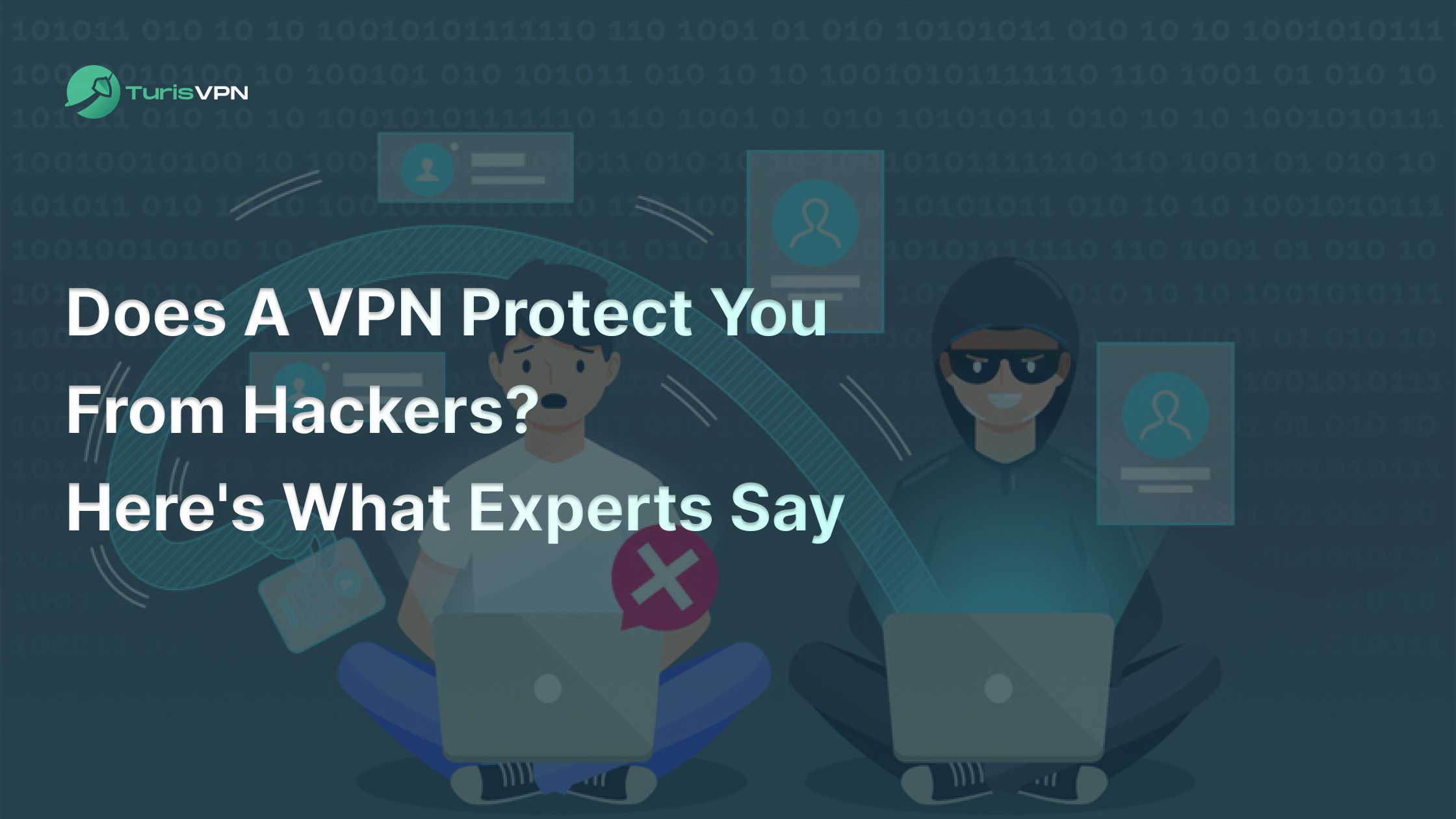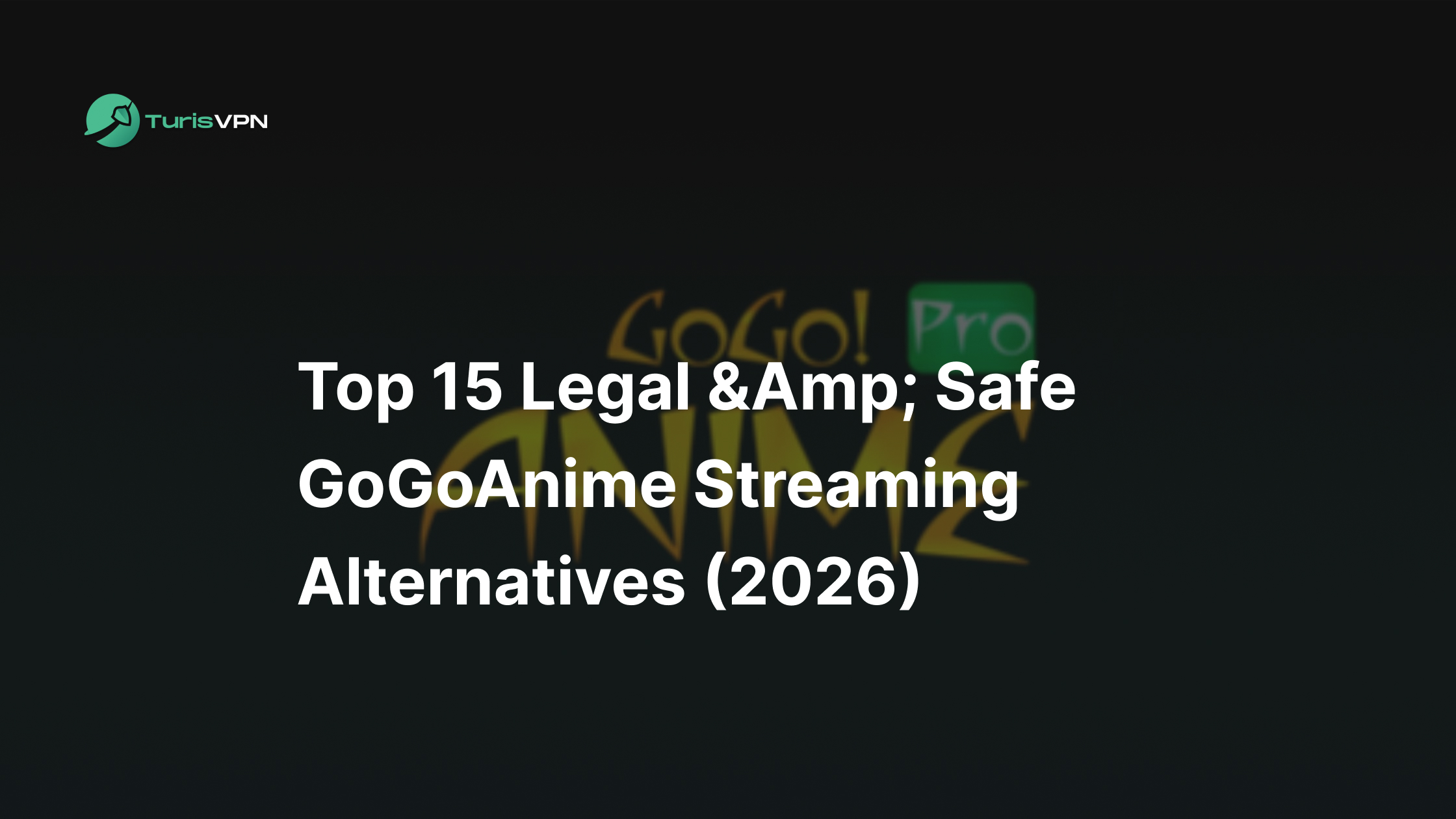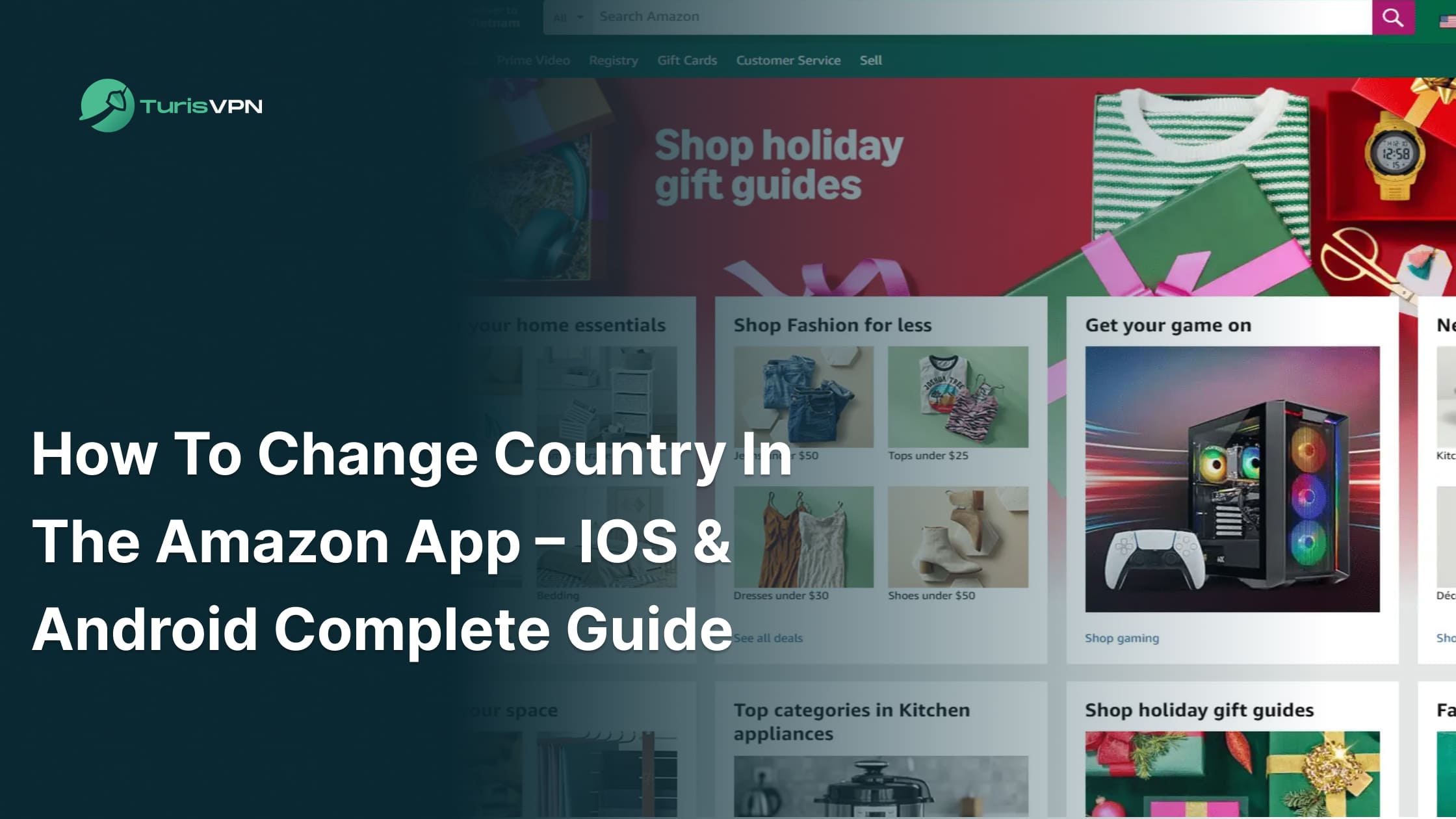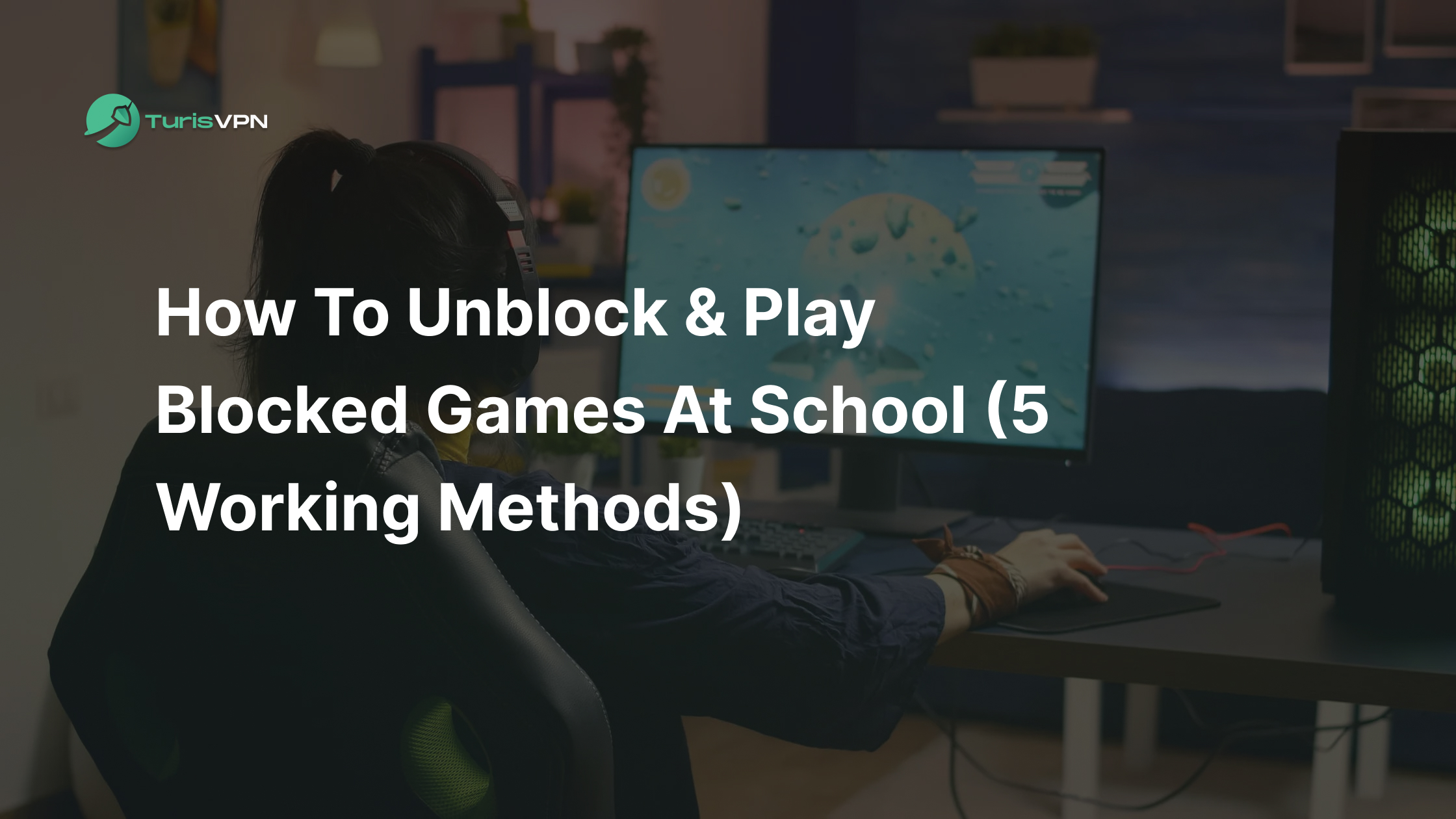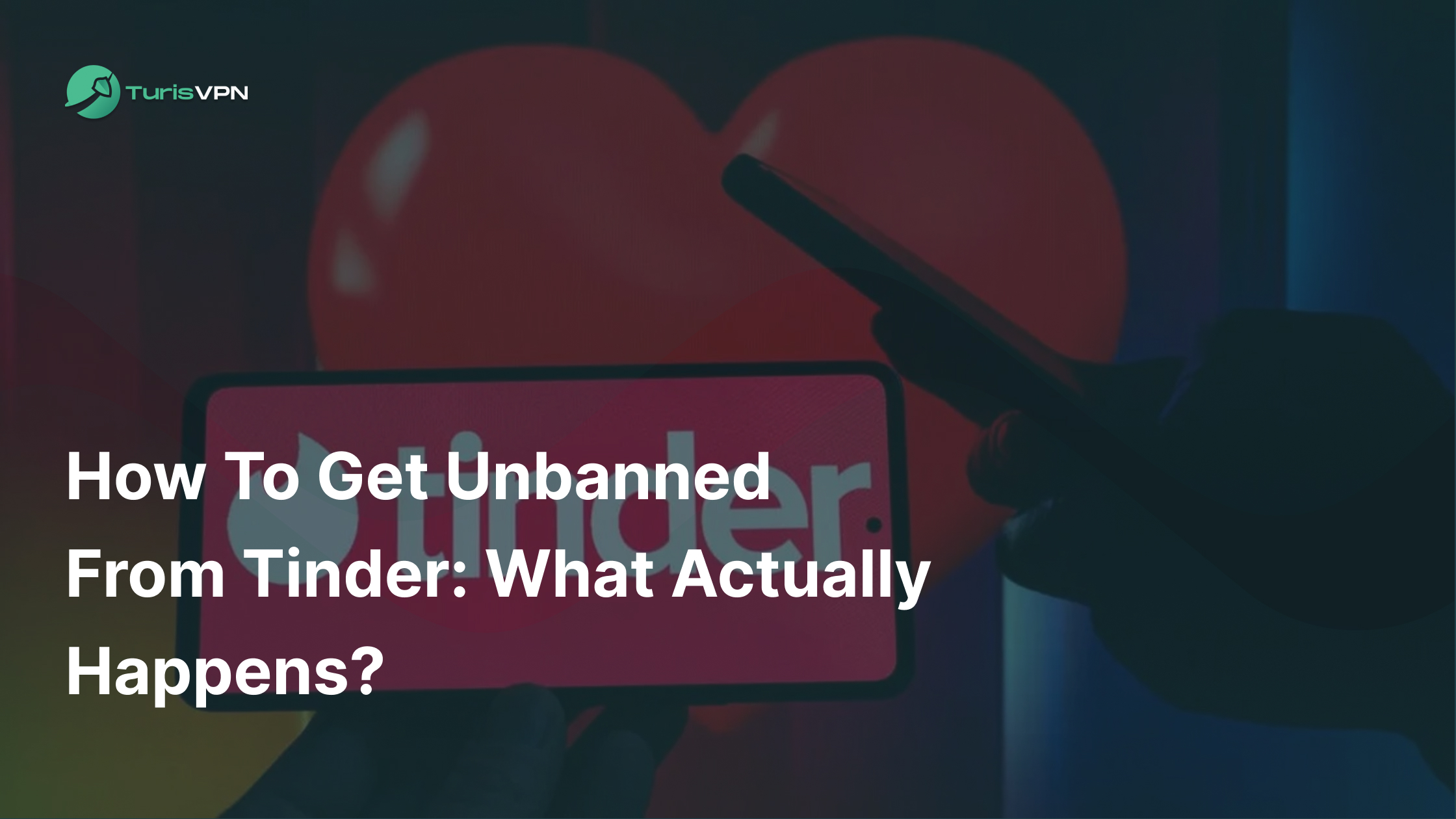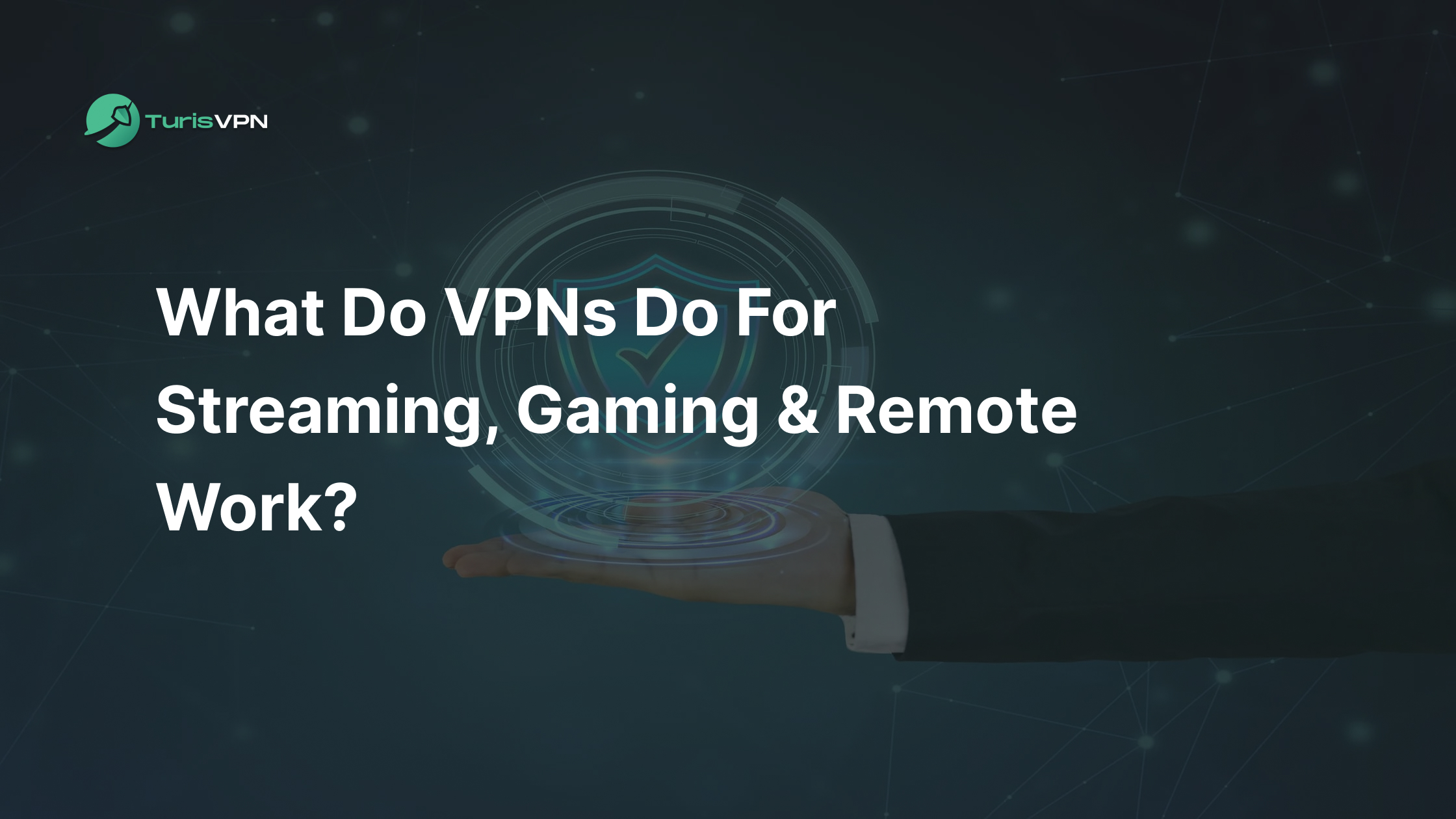Many people fear the quickly changing digital world of today, “Does a VPN protect you from hackers?” Experts depend more on VPNs (Virtual Private Networks) to safeguard important data and hide online behavior as internet security risks expand and criminals diversify.
Our thorough article today will explain how a VPN protects you from cyber-attacks and assess how effective VPNs are. More importantly, we also discuss essential features to help you decide whether this product is right for you. Let’s scroll down now!
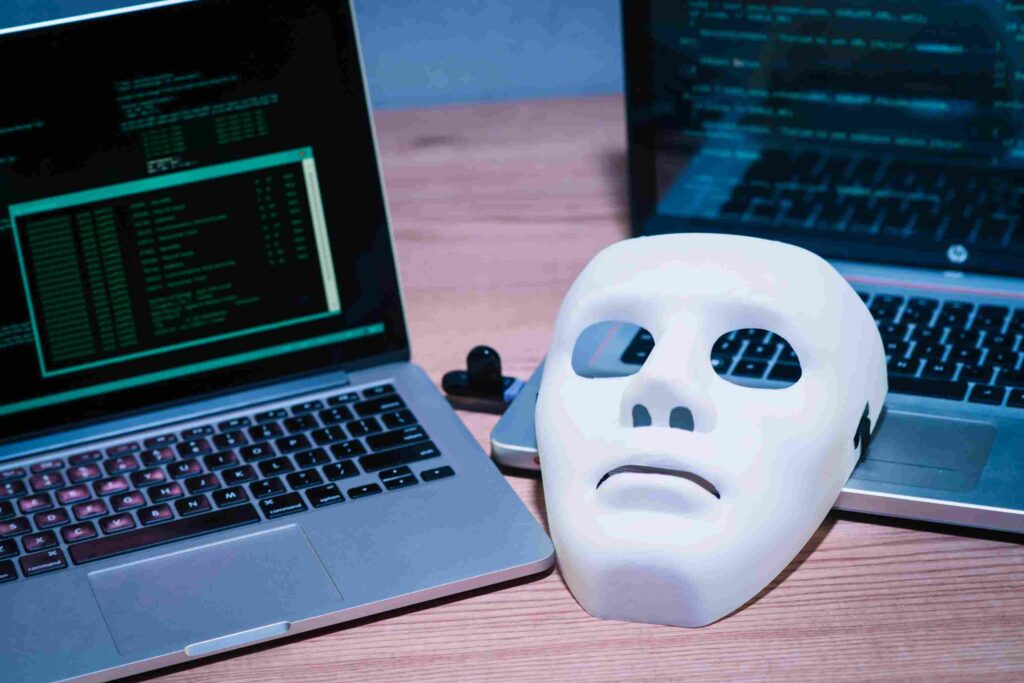
Does A VPN Protect You From Hackers?
Yes, VPNs are effective against common hacker tactics. If you’re worried about cybercriminals stealing your data, using a VPN can make it much harder for them to get through.
Numerous studies and experts suggest that utilizing a VPN considerably enhances online security. But what exactly does VPN protect you from?” Fortunately, a VPN can help you to avoid being hacked or affected by common cyber attacks.
What does a VPN protect you from?
As mentioned above, a VPN can surely protect you from typical cyberattacking action. Here are some other things that a good VPN can help you to:
- Prevent several common cyber attacks: Shields your data from hackers when using public Wi-Fi.
- Avoid surveillance: Conceals your online activity from ISPs, advertisers, and prying eyes.
- Data snooping: Encrypts your internet connection to secure personal information.
VPNs are supposed to offer a solid layer of privacy for your online activity, but you also have to be sure you are following the best standards and utilizing dependable programs.
It’s because the way you combine these solutions into your whole cybersecurity plan determines the security of your data.
How Does A VPN Protect You From Hackers?
We must dissect the technology underlying VPNs if we are really to know if they shield you from hackers. Let us investigate the main processes enabling VPNs to fight cyberattacks.
1. Hide your IP address
Hiding your actual IP address is among the easiest but most powerful methods a VPN protect your data. Connecting to a VPN hides your genuine digital identity as the address of the server replaces your real location.
Hackers trying to target your actual location will find it rather difficult due to this redirection. Many then also wonder, “How do VPNs protect you?” by keeping anonymity.
Masking your identity helps the VPN reduce the possibility that a cyber attacker may connect your online behavior back to you. Many people still wonder, “Does a VPN protect you from hackers?” mostly because of this very approach.
2. Encryption
Any strong VPN system is based mostly on encryption. Encryption of your data transforms it into a code only readable with the correct key. This implies that the data will seem nonsense without the decryption key, even if a hacker intercepts it.
Users still ask, “What does a VPN do for security?” as encryption is very essential for safeguarding both personal and business correspondence.
Moreover, encryption guarantees that private data, including login passwords, financial data, and personal correspondence, stays private.
3. Ad blocking
Many modern VPNs also have ad-blocking tools. Phishing campaigns or malware might find their way through ads; therefore, VPNs not only accelerate surfing but also lower security threats by preventing them at the source.
Including ad blockers answers another question, “Do VPNs prevent hacking?” by detecting harmful advertising before it becomes a danger, therefore adding an additional degree of protection.
Though it’s sometimes disregarded, ad blocking may be a powerful deterrent for hackers seeking to use compromised advertising to exploit weaknesses.
The capacity of a VPN to offer ad-blocking features emphasizes even more how “Does a VPN protect you from hackers?“
4. Kill-switch
An important safety feature is a VPN kill switch cuts off your internet access should the VPN fail without warning. This ensures that should your secured connection fail, your data is not inadvertently leaked.
The kill switch guarantees the response to “Does a VPN protect you from hackers?” by instantly turning off your network connection during a disturbance.
For people who are particularly sensitive to privacy and security, especially while wondering whether a VPN would shield them from hackers, integrating a kill switch is strongly advised.
5. Secure protocols
Operating using safe protocols that control data flow over the network, VPN policies, including TurisVPN, IKEv2, and WireGuard, guarantee secured and safe online traffic.
Understanding “What does VPN protect you from?” depends on knowing this since these systems defend against data eavesdropping and other harmful behavior.
Apart from the accepted standards, contemporary VPNs may include sophisticated tools to track traffic integrity. This feature guarantees stronger levels of protection for your online data.
6. No-logs policies
Many reputable VPNs, from free to paid VPN services, take great care to have no-logs policies. The VPN service does not, therefore, track your online behavior.
Even if law authorities demand data, a VPN provider’s rigorous no-logs practices mean that there is not much value to reveal.
Regarding privacy, users often ask, “How effective are VPNs?” VPNs are highly effective at preserving privacy and securing your data through strong encryption and no-logs practices.
Therefore, the protection of your identity depends much on the use of no-logs regulations, which directly support “Does a VPN protect you from hackers?” Of course, yes.
By utilizing rigorous no-logs policies and robust encryption, VPNs significantly reduce the risk of hackers accessing your sensitive information.
The Common Cyber Threats A VPN Can Prevent
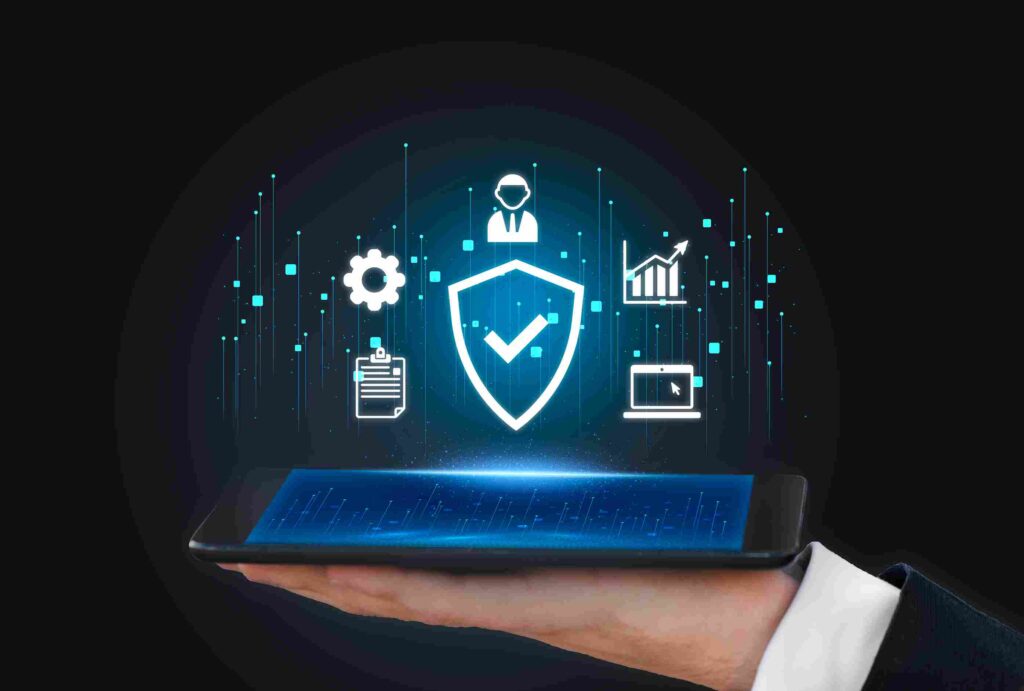
Although they are not a cure-all, VPNs are quite good at stopping some types of internet crimes. A VPN can help to avoid some typical risks, including:
- Man‑in‑the‑Middle Attacks: VPN encryption can reduce the risk of intercepted data being readable by up to 99%, ensuring that even if data is captured, it remains scrambled and secure.
- Identity Theft: By masking your IP address, VPNs lower the chance of exposing sensitive information, studies suggest they can decrease identity theft risk by approximately 90%.
- Tracking and Surveillance: With a VPN, the likelihood of unauthorized tracking or surveillance drops by around 75%, allowing for a more private and secure online experience.
Use a reputable VPN service to help many of these problems go away while you decide if “Does a VPN protect you from hackers?“
Furthermore, if you have ever wondered, “What does a VPN do for security?” the encryption and no-logs regulations of a VPN serve to defend against these same risks.
Remember always that keeping best practices is more important than even a VPN improving security by shutting numerous possible holes.
The Common Cyber Threats A VPN Can’t Prevent
Although VPNs are quite effective, they are not a complete security fix. Just as crucial as knowing their abilities, is knowing their limits. VPNs won’t shield you from:
- Malware and Ransomware: Ransomware and malware call for specific antivirus and antialware programs to identify and eliminate destructive programs.
- Phishing Attacks: VPNs cannot protect you should you willingly supply private data to a phony website.
- Social Engineering: Cybercrime typically takes advantage of human behavior, a strategy not covered by VPN technology.
Although lots of people wonder, “Does a VPN protect you from hackers?” it’s important to realize that some dangers call for complimentary security solutions.
For instance, a popular concern highlighting VPN limits is “How to know if your VPN is hacked?” Add additional cybersecurity best practices to augment your VPN security for total safety.
Although a safe VPN is a big start in resisting many kinds of attacks, keep in mind that it has to be part of a layered defense. No one solution, in fact, can totally protect you from every cyber threat.
Is TurisVPN Safe? How It Protects You From Hackers
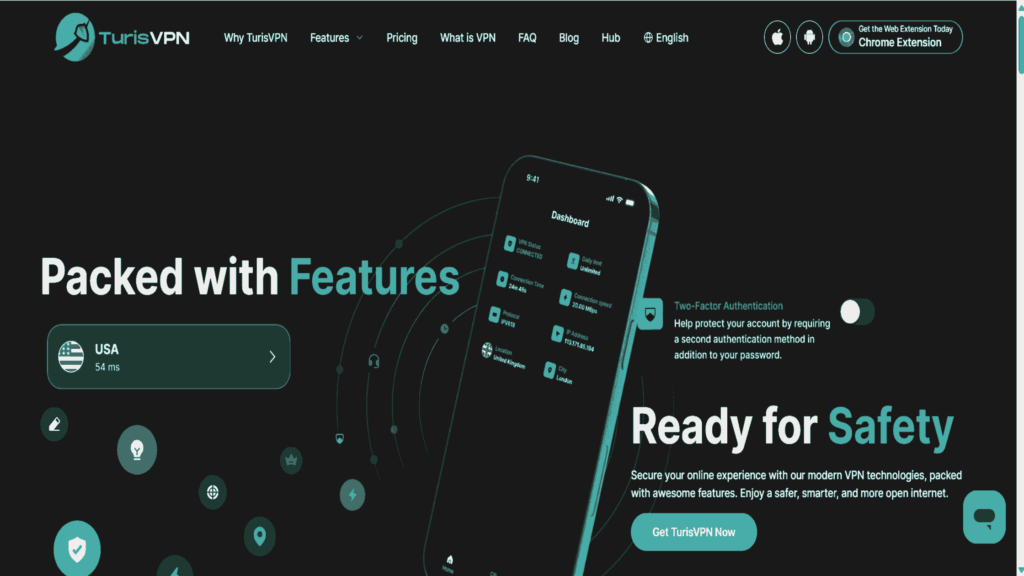
Yes, TurisVPN is totally safe. Among the many VPN providers available, TurisVPN has steadily gained attention. Many potential users ask again: “Does a VPN protect you from hackers?” TurisVPN markets itself as a robust option with advanced security features.
Let’s evaluate how TurisVPN addresses these concerns.
Key features
TurisVPN is celebrated for its secure protocols and strict no‑logs policy. Additional features include:
- WireGuard Protocols: For users looking for the latest in secure communications, TurisVPN supports cutting‑edge technologies.
- IP-2Hop – Super-private Protection: Enhance your privacy by routing your connection through two separate servers, making it significantly impossible for anyone to trace your online activity.
- Unlimited Data Usage: Enjoy seamless, unrestricted internet access without worrying about data caps.
TurisVPN’s security suite gives users peace of mind, answering questions like “How do VPNs protect you?” with an integrated approach. With high‑end encryption and secure protocols, TurisVPN substantially supports the notion that “Does a VPN protect you from hackers?”
How to set up
Setting up TurisVPN is straightforward:
- Step 1: Download and Install: Visit the official TurisVPN website and download the application for your operating system.
- Step 2: Log In or Register: Create an account or log in with existing credentials.
- Step 3: Select a Secure Server: Choose a server in your desired location. The wide selection ensures optimal speed and security.
- Step 4: Enjoy Secure Browsing: Once set up, take advantage of improved internet security to have peace of mind.
Strong security mechanisms and the easy-to-use design of TurisVPN have caused many to question, “What does VPN protect you from?” which has brought back hope in its ability to stop online attacks before they begin.
Additional Methods You Can Do To Prevent Hackers
Although VPNs are a necessary tool, they complement other security measures well. Addressing the fundamental issue of whether a VPN protects you against hackers requires knowing that a tiered approach is preferable. Here are some additional methods to consider:
Use password managers
Every account’s strong, distinctive password will help to lower the hacking danger drastically. Password managers create difficult passwords for you and safely save them. Combined with the encryption of a VPN, you increase security.
Remember that, even with one weak password used, “Will a VPN protect me from hackers?” Not strictly; ensure your passwords are as strong as your VPN encryption.
Exercise Cybersecurity
Stay clear when clicking on suspicious links; always double-check emails, websites, and downloads before using them. Remember that your behaviors greatly affect online safety.
Install antivirus software
Malware may break in via emails or downloads regardless of the security level of your connection. Therefore, to best complement “Does a VPN protect you from hackers?“, you should search for top-tier antivirus software to eliminate dangerous programs from your system.
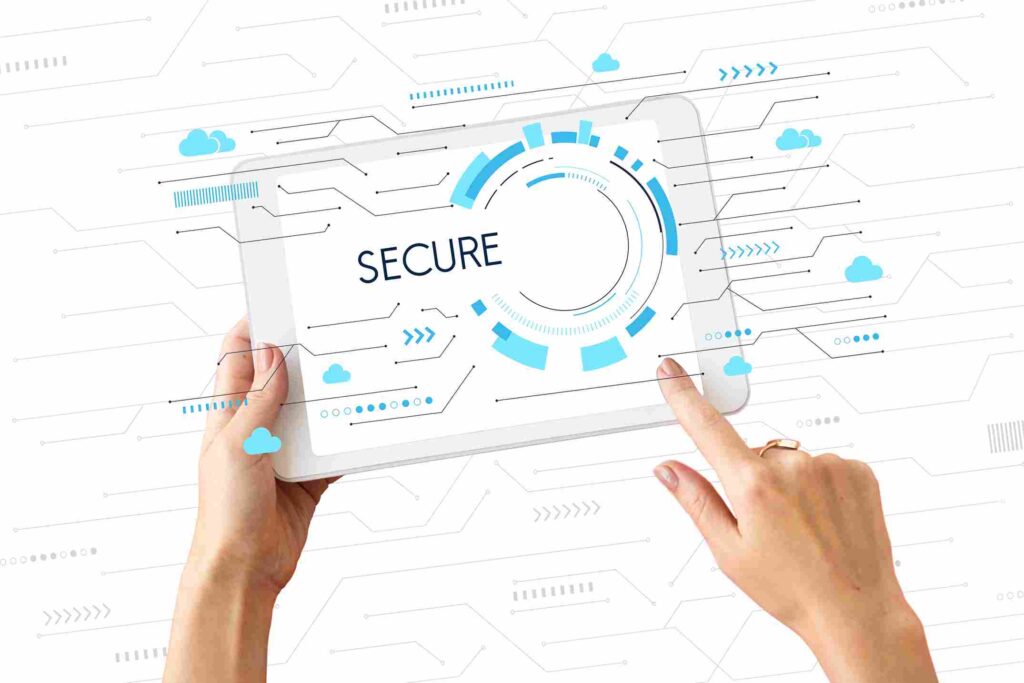
Enable two-factor authentication
By seeking an additional verification step, two-factor authentication (2FA) even further protects your accounts. This means your account is safe even if a hacker gets your password.
This habit complements “How do VPNs protect you?” by creating another layer of defense against hacker efforts.
Invest in ad-blockers
Ad blockers prevent malicious ads and pop-ups that might lead to phishing sites or malware. They reduce your exposure to online threats and support the efforts of limiting potential attack vectors.
Maintain Software Updates
Regular updates patch security vulnerabilities. Keeping everything updated guarantees that there isn’t another weak area for attackers to take advantage of, whether it’s your operating system, browser, or antivirus program.
Bottom Line
In an ideal digital environment, every security layer counts. Then, “Does a VPN protect you from hackers?” Yes, a correctly configured VPN reduces your cyber attack risk.
VPNs should be used in conjunction with strong passwords, antivirus software, frequent updates, and safe online conduct.
The experts suggest that while a VPN isn’t a silver bullet for security, it provides valuable protection in an uncertain online environment.
Following the best practices above assures that even if you don’t have much knowledge about how to protect yourself from hackers, you can still stay proactive in cybersecurity.
FAQs
Q1. Can a VPN be hacked?
Although no technology is perfect, respectable VPN providers use cutting-edge security techniques to guarantee that the likelihood of a breach is almost nonexistent. The danger is much lowered by means of modern encryption, safe systems, and frequent audits.
Q2. How to know if your VPN is hacked?
You should always be watching your connection for unusual activity. Some telltale signs can include unexpected disconnections, rapid declines in connection speed, or suspicious network activities. Simply said, using scanning security logs and network monitoring tools will assist. “How to know if your VPN is hacked?” should inspire you to act right away should any abnormalities show up.
